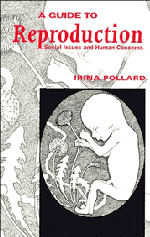Book contents
- Frontmatter
- Contents
- Preface and acknowledgements
- Part one Reproductive biology
- Part two Reproduction and social issues
- 13 Population dynamics, stress and the general theory of adaptation
- 14 Extinctions and the conservation of endangered species
- 15 Artificial control of fertility
- 16 Hormonal contributions to errors of sexual differentiation
- 17 The acquired immunodeficiency syndrome (AIDS) epidemic: a global emergency
- 18 The effect of nutrition and exercise on the hypothalamic–pituitary–gonadal axis
- 19 Principles of teratology and an update on nicotine, ethanol and caffeine abuse
- 20 Ethical aspects of human reproductive biology
- Index
17 - The acquired immunodeficiency syndrome (AIDS) epidemic: a global emergency
Published online by Cambridge University Press: 05 June 2012
- Frontmatter
- Contents
- Preface and acknowledgements
- Part one Reproductive biology
- Part two Reproduction and social issues
- 13 Population dynamics, stress and the general theory of adaptation
- 14 Extinctions and the conservation of endangered species
- 15 Artificial control of fertility
- 16 Hormonal contributions to errors of sexual differentiation
- 17 The acquired immunodeficiency syndrome (AIDS) epidemic: a global emergency
- 18 The effect of nutrition and exercise on the hypothalamic–pituitary–gonadal axis
- 19 Principles of teratology and an update on nicotine, ethanol and caffeine abuse
- 20 Ethical aspects of human reproductive biology
- Index
Summary
The conditions under which people live and the ways in which they behave have a significant bearing on their reproductive health. That medicine has to be practised in a social context was emphasized by Hippocrates as long ago as 400 BC, when he wrote ‘Whoever wishes to investigate medicine properly should proceed thus: in the first place to consider the seasons of the year … Then the winds … In the same manner, when one comes into a city in which he is a stranger, he should consider its situation, … the water which the inhabitants use …, and the mode in which the inhabitants live, and what are their pursuits …’. (From the FIGO Manual of Human Reproduction.) This good sense is as relevant to reproductive health today as it always has been to health in general. Reproductive health reflects the stresses of poverty and environmental pollution and is especially relevant in the context of infectious diseases. Reproductive health, particularly in developing countries, is lamentable and will deteriorate further unless all nations take responsibility for improving their environments.
Sexually-transmitted diseases (STDs) are an extremely broad subject area and are discussed here only in relation to AIDS, which now represents our greatest human concern. Much of the experience with AIDS can be generalized because there are close parallels between the current AIDS epidemic and previous epidemics of other sexually-transmitted diseases. Syphilis which, like AIDS, spreads most rapidly among the poor and mostly in developing countries, is such an example.
- Type
- Chapter
- Information
- A Guide to ReproductionSocial Issues and Human Concerns, pp. 320 - 337Publisher: Cambridge University PressPrint publication year: 1994



